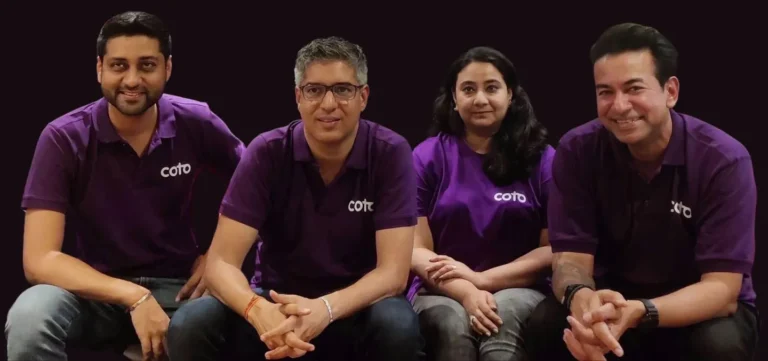Dean DeBiase is a best-selling author and Forbes Contributor reporting on how global leaders and CEOs are rebooting everything from growth, innovation, and technology to talent, culture, competitiveness, and governance across industries and societies.

Rebooting a $7 Trillion Economy

By Dean DeBiase
February 7th, 2023
Wellness is being rebooted and coming to your front door soon. Now a $4.2 trillion industry that has worked its way into every aspect of our daily lives, the global wellness economy is forecast to reach $7 trillion by 2025.
We are mindful of our holistic health, meditate on our lunch breaks (okay not all of us), personalize our skin care, and wear smart watches as permanent accessories, reminding us of when, where, and how to “be well” at any given moment.
This newfound fascination is fueled by the concern that the average person’s window for achieving true wellness is seemingly getting smaller and smaller, as the threat of chronic disease looms larger. In fact, many individuals will spend half or more of their lives in a state of disease. What? That’s what I’ve learned.
More than one-fourth of U.S. adults have at least one diagnosable chronic condition by age 44 and two-thirds will be diagnosed with a chronic disease by the time they reach age 65. All the while, the United States is moving backward when it comes to quality of life, scoring dismally low on the Social Progress Index.
Long gone is the day when we would visit our primary care doctor once a year and leave the rest up to fate. Wellness, by definition, is an “active pursuit” of holistic health—and our wellness is more in our hands now than ever before. But as we embrace the future of wellness, we also must wade through misinformation, malpractice, and pseudoscience at every turn. Even well-intended efforts can seem like a shot in the dark. Ugh. What’s the point of pursuing better health and wellness when we have no true sense of how well we are at any given moment—and what we may be up against in the future?
Creating the Conditions to Live Healthier Longer
Currently, chronic diseases like diabetes, cancer, and cardiovascular disease are the leading causes of death in the United States, and 75 percent of federal health care spending is directed toward late-stage disease treatment.
Does it have to be like this? Nope.
Health and wellness is in the midst of an entrepreneurial reboot, with a fresh look at everything from medicine to food—from the advancement of diagnostic technology platforms, with organizations like Viome and Thorne HealthTech to AI (artificial intelligence) and data enablement solutions with companies like Revieve and Centiblick.
I took a look under the hood at Thorne HealthTech (THRN), as they recently acquired PreCon Health, to learn how they are planning to reboot the human health industry on a three phase spectrum of wellness, transition, and disease. Stick with me here—it’s about you.
The reality is that if you are past your twenties, then you have likely already slipped out of a state of wellness and are in the phase of transition to disease and aging-associated declines. What? I know this sounds alarming on the surface, but it actually forms the basis for scientific wellness—a concept covered in detail in the upcoming book, The Age of Scientific Wellness, authored by the company’s Chief Science Officer, Dr. Nathan Price, and biotechnology pioneer Dr. Lee Hood.
The book’s premise is that through a data-driven approach each of the three phases of the human health trajectory can be optimized—extending the wellness period and improving its quality, detecting and reversing transitions, and greatly delaying and preventing disease. On a tactical level, this means leveraging genome and phenome data and digital measurements of health to assess the body’s optimal physiology and brain, and design personalized interventions that will end the transition long before disease materializes.
Ultimately, these emerging growth companies, envision a future where Alzheimer’s is restrained, cancers are found early and eliminated, diabetes is avoided, and autoimmune diseases are neutralized. Sounds too good to be true—unless there is a fundamental reboot in how we think about the trajectory of human health. Indeed, today’s health care system, we all live in, is focused on treating chronic diseases rather than preventing them, but case after case proves this approach isn’t particularly effective.
In large part, Thorne believes this is due to the fact that when an individual goes into late-stage disease they experience the causal changes that initiated the disease, and a cascade of downstream consequences alongside compensatory mechanisms as their body tries to recover. By only studying late-stage disease, this makes it almost impossible to pinpoint biomarkers that would indicate the root cause of the disease. Instead of waiting for symptoms to arise, we must seek to optimize health when the body is already in a state of wellness.
Test, Teach, Transform
The nutritional supplement market has long been crowded with confusing products that lack clinical validation, brand equity, or meaningful personalization. But still, we all participate as some benefits are obvious. Thorne’s CEO, Paul Jacobson, recognized the company needed to adopt the same level of methodology and scientific rigor as a biotech or pharma company. His team created and now ascribe to a clear, evidence-backed business model: test, teach, and transform. That means not only helping consumers be active participants in their health, like the Centiblick platform enables, but also providing actionable education and empowerment to help people navigate an overwhelming nutritional supplement marketplace. It is overwhelming, right?
The strategy seems to be working, and they have become a vertically integrated consumer health solutions organization with an ecosystem across both direct-to-consumer (D2C) and business-to-business (B2B) channels. The company offers many tests in its portfolio, combining its proprietary, multi-omics platform (a biological analysis of “omes” including the microbiome and genome), with its integrative AI models to capture a wealth of data about one’s health, identify any potential risks, and provide recommendations and comprehensive plans for improvement. Alongside its tests, the company offers a suite of more than 300 targeted supplement solutions with high quality formulas. Most importantly, Thorne recommendations are personalized to the individual—because if our current health care model has taught us anything in the last few decades, it’s that a one-size-all approach was just the beginning.
For example, consider the company’s gut health Microbiome Wipe. Based on the principle that everyone’s microbiome is unique to them, the test provides a detailed analysis of factors related to digestion, inflammation, the nervous system, immune function, and the presence of pathogens. By mapping and integrating the test’s results, they can offer a personalized action plan that targets the root of gastrointestinal discomfort and optimizes wellness for the body.
Beyond personalized testing and solutions, Thorne uses its AI models to fuel discovery for research and development. By conducting predictions across natural compounds to understand their chemical structure and biological action, their AI models are engineered to identify potential interventions that might not be currently available on the market. In practice, this can enable the company’s partners to generate drug leads faster, develop new probiotics, and cure bacteria strains faster.
The company also works with practitioners (you remember them) to develop personalized programs and treatment regimens that go beyond traditional pharmaceutical intervention and focus more on lifestyle, nutritional health, and wellness impact.
Rebooting Health and Wellness UX
MedTech innovation has received billions in funding recently, but it’s not always about the latest bedside gadget or drug. Part of what makes a scientific wellness company stand out is revolutionizing unpleasant healthcare UX (user experiences) and broadening access to potentially life-saving health data.
Thorne’s Microbiome Wipe is recognized for being as easy to use as toilet paper, offering an alternative to the inconvenient and uncomfortable stool sample collection method for gut health testing. Made with a biodegradable polymer technology and utilizing a solution that preserves the user’s DNA, the Microbiome Wipe ensures a stable transportation method, leading to more accurate results than traditional stool collection methods, and proving valuable for sampling, testing, and genetic analysis in clinical trials, home use, and remote environments. I know, awkward, but we’re done.
Beyond gut health testing, the company is working on transforming the blood-testing patient experience that we hate. Partnering with Drawbridge Health, they developed its participant-administered OneDraw™ Blood Collection Device, which has shown ease of self-administration (without a health-care practitioner present or any specialized training), a near pain-free experience, and a 99.9-percent success rate for lab processing, as shown in a recent large-scale surveillance study. Unlike traditional blood sampling, OneDraw samples are able to be stored at room temperature for up to 28 days through cold-chain-free storage technology—presenting an ideal solution for patients or research participants in remote areas or for a multi-site clinical trial. Medical communities may scoff, but entrepreneurial-innovation rocks.
The Future of Personalized Prevention
So what’s next? How about personalized manufacturing. Thorne has dipped its toe into this space, leveraging 2D printing to create its revolutionary Kids Multi+, a nutritional supplement for children in the form of a dissolvable disc.
Already at the genesis of the at-home testing revolution, the company is working on advancing testing capabilities to help patients assess the efficacy of their medications and monitor health changes as they age—from home.
But perhaps most significantly, the company envisions that digital twin technologies will drive the future of modern medicine and transform health outcomes at a level beyond imagination. An emerging capability in preventative wellness research, digital twin technology can simulate an individual’s unique physiology and biochemistry in a computer. Together with EmbodyBio, they are leveraging this technology to build a computational, multi-omics model of brain health that can simulate brain health and dementias for more than 10 million digital twins across the adult lifespan—and ultimately predict the most beneficial multimodal intervention strategies at a personalized level. As we say—God speed.
As these capabilities become more widespread and well validated, Thorne, and others believe, that essentially all chronic disease can be approached with similar multimodal models for greatly enhanced personalized care—good news we hope.
Depending on what country you live in, many of us live in a societies addicted to “quick fix” fads and late-stage treatment interventions that focus on finding cures instead of root causes. But the reboot has begun, with billions being invested in health and wellness.
Although we aren’t able to change the number of times we’ve gone around the sun yet, we just might be able to turn back our biological clock—living better or longer with the same level of physical and cognitive health we had in our youth. Yes please—that is a version of wellness worth pursuing.






